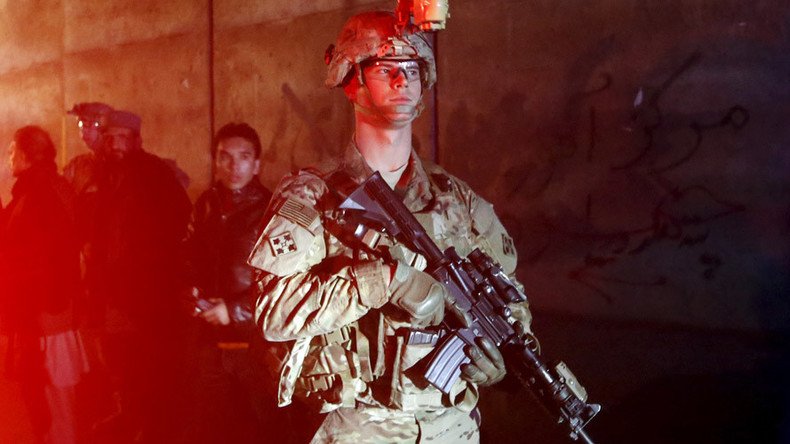Obama authorizes US troops to target new ISIS affiliate in Afghanistan

Known as ISIL-K, the Afghanistan group claiming to be a branch of Islamic State can now legally be targeted by US troops, thanks to White House authorization. Military officials welcomed the move as a “significant step.”
The new authorization came Wednesday after Defense Secretary Ash Carter asked for it last month. A military official referred to President Barack Obama’s fulfillment of the request a "significant step," reported The Military Times.
“It is certainly a recognition of a long term potential threat,” the official said.
The K in ISIL-K stands for Khorasan, or what the self-proclaimed Islamic State chapter calls the territory where it operates, which so far is in parts of Pakistan and the Nangarhar province in eastern Afghanistan. The group is estimated to be between 1,000 and 3,000 members strong.
White House announces revamped counter-terrorism propaganda campaign
https://t.co/qATk24vM4Epic.twitter.com/hxQMunnWRr
— RT America (@RT_America) January 9, 2016Earlier this month, the Islamic State (IS, also known as ISIS/ISIL) claimed it was responsible for an attack on a Pakistani consulate in Jalalabad, Nangarhar province. Seven Afghan security forces died.
In the State Department’s online announcement of the new designation of the group as a “foreign terrorist organization,” it described ISIL-K as being based in the “Afghanistan/Pakistan region and is composed primarily of former members of Tehrik-e Taliban Pakistan and the Afghan Taliban.”
It’s also responsible for “suicide bombings, small arms attacks and kidnappings in eastern Afghanistan… and claimed responsibility for [the] May 2015 attacks on civilians in Karachi, Pakistan,” which killed 40 people.
With the Defense Department labeling them a “hostile-force,” the estimated 9,800 troops in Afghanistan will be able to target the group just as they can Al-Qaeda. Previously, they could only retaliate to provocations or attacks from ISIL-K.
In addition to defeating ISIL-K and Al-Qaeda, the other half of the troops’ mission remains training Afghan forces to deal with the Taliban insurgency. Though the Taliban attacks US targets, it is not under the same authorization as the Islamic State and Al-Qaeda-related groups.
“The Afghan government has said, with the Taliban, they are looking for a long term peaceful solution. They don’t seem to view ISIL-K the same way,” the military official told The Military Times.
Turkey’s ops not directed at #ISIS – Pentagon head to US Congress https://t.co/vc4GdGR5L7pic.twitter.com/C9WY0ajK7I
— RT America (@RT_America) December 2, 2015While the Afghan government sees the alleged Islamic State affiliate as a top priority, the US is downplaying its relative threat as compared to the official terrorist organization.
“We currently characterize [ISIS] as operationally emergent,” Brig. Gen. Wilson Shoffner, spokesman for the Resolute Support Mission in Afghanistan, told The Times.
“I'll define that as not having the ability to orchestrate or control operations in more than one part of the country at a time. We're not seeing [ISIS] elements in Iraq or Syria orchestrating events here in Afghanistan,” Shoffner said.
“They've [ISIL-K] largely been pushed back to the southern parts of Nangarhar province. That area is very, very rugged, it's very mountainous. It's on the border with Pakistan,” Shoffner said.
Last week during the State of the Union speech, Obama told Congress to pass legislation giving broad authority to militarily attack the Islamic State outside of Iraq and Syria. The last time an Islamic State member was killed outside that theater was in December, when US warplanes killed Abu Nabil, also called Wissam Najm Abd Zayd al Zubaydi, in a strike in Libya. That strike was under still another executive-granted authority to fight terrorist threats.












